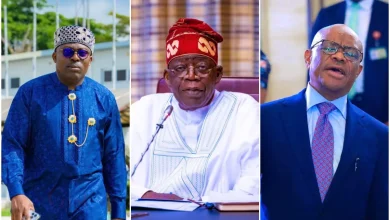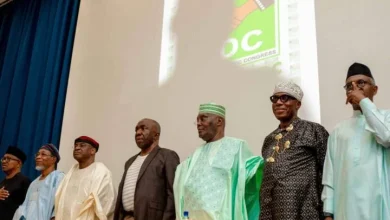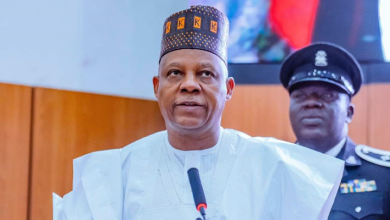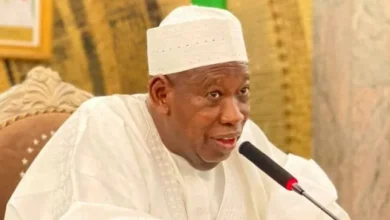Direct Federal Allocations Controversy: Spotlight on Edo State
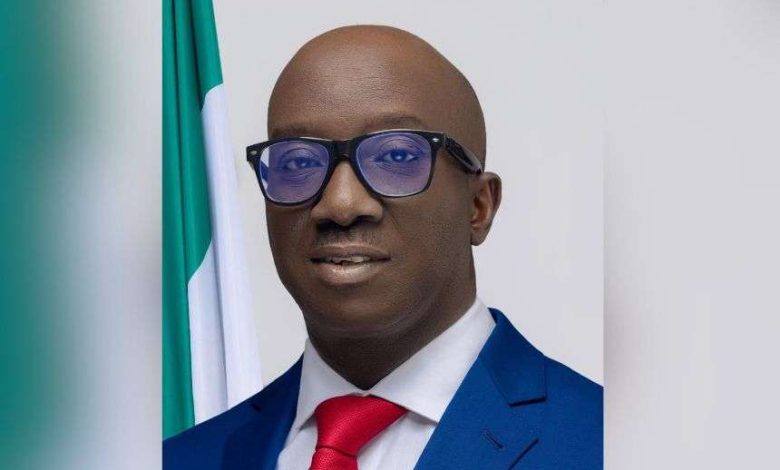
Another crucial phase has just begun in the conflict between the Edo State administration and the elected local government executives over who has the most economic clout among the state’s 18 LGCs.
Following a recent national instruction, the 774 local governments are now required to create special accounts with the Central Bank of Nigeria (CBN) in order to receive allocations directly from the Federation Account.
Additionally, the CBN instructed that each local government chairman must attach their certificate of return as elected chairman to the indicated signature in order to open this dedicated account. Without this, the account details would not be accepted, and in the case of Edo State, this requirement might not be met because elected council chairmen and their deputies have been suspended for two months.
On December 17, 2024, this crisis started when the governor wrote to the state house of assembly, requesting that the council chairs be suspended following an investigation into third-tier government funds because of alleged institutional failures. This could have been brought on by a long-running battle with addiction and clandestine intrigues.
Following purportedly convincing evidence of shortcomings in the third tier of government—which is regarded as a crucial element in the professed commitment to delivering dividends for the public good—Governor Monday Okpebholo became obsessed with this subject.
The state government is upending the status quo with a daring forecast that signals a sea change and aids commentators in comprehending the current situation.
More significantly, the governor’s letter to the State House of Assembly, which appeared in wild dogs lounging with a new attitude in 2022, requested the suspension of elected chairmen and their deputies in accordance with Section 10, sub-section (1) of the Edo State Local Government Law 2000 as amended.
Remarkably, the State House of Assembly, which is led by the Peoples Democratic Party (PDP), overturned the law’s section while considering the governor’s letter. This was a political move that changed the Edo Local Government Administration’s daily operations in an effort to restore the supposedly depressing legacy left by the previous administration of Governor Godwin Obaseki.
However, on December 17, 2024, the House of Assembly declared the 18 Local Government chairmen and their Deputies suspended for two months due to alleged gross misconduct and insubordination. The House of Assembly sought relief under Section 10 (20) of the same law, which discusses the Legislative Arm’s authority to suspend Local Government chairmen.
The governor got his way after lawmakers who opposed the suspension were silenced by the gavel. A memory that will undoubtedly be hard to forget in Edo State’s democratic journey is the sense of danger that diverse interest groups felt when the petition was discussed during plenary.
It’s interesting to note that when Obaseki was in power as governor of the state, the 2003 Edo State Local Government Law (2022 as modified) was approved by the same House of Assembly, which is currently managed by Speaker Blessing Agbebaku.
The Council chairmen were called to a meeting in Government House, Benin City, by Governor Okpebholo, through State Deputy Governor Dennis Idahosa, prior to the Assembly’s resolution. They were instructed to submit their financial accounts and Council receipts to the government.
Through impeachment by their respective legislative assemblies in the midst of strife, this daring endeavor summarized the terms of several Local Government Council chairs and their deputies.
The development prompts stakeholders to wonder if the governor’s goal is to demolish coalitions formed by leaders of the various Local Government Councils with the PDP, the state’s main opposition party, and possibly solidify his authority.
Once more, there are worries that political actors’ use of subtle coercion and power plays goes beyond merely postponing the arrival of the truth and poses a challenge to the rule of law with a strict sense of accountability.
Is the Nigerian 1999 Constitution, as modified, in conflict with the Local Government Law that the House of Assembly relied upon?
What would have motivated the governor to request that the different managers of the Local Government Councils release their records for inspection, and does the governor have the constitutional authority to interfere in local government matters as we have witnessed in Edo?
These are a few of the questions that beg for clarification. Due to these developing circumstances, certain Council employees are unable to get their 13th month’s wage from their Internally Generated Revenue (IGR) at the end of 2024, which has created its own set of difficulties.
One may argue that grassroots governance is slowing down every day as long as family conflicts, which are caused by fuzziness in the political boundaries between the hunter and the hunted, persist.
While their supporters and traducers, including party loyalists, continue to spread false information about griots on social media, some individuals, suspected of being political thugs connected to government authorities, violently eject suspended chairmen who tried to retake their seats after receiving judicial reprieve.
Governor Okpebholo feels that strict measures must be implemented to address certain irregularities, and he is pleading with people who are directly or indirectly impacted by his desire to garner support for his severe stance to be understanding.
He decides to ignore distractions, but he also considers the reasonable criticism that is aimed at him.
In a same spirit, the state’s civil society organizations campaigned for the governor to reinstate the suspended local government chairmen and tried to fulfill the volunteer watchdog role of Ombudsman, which is intended to steer the state toward peace.
President Bola Tinubu recently recommended Nigerian governors to work with the 774 Local Government Administration to promote development at the grassroots level, and they urged the governor to honor his request.
The majority of council chairmen, who are either falsely or correctly accused of embezzling public monies, ignore the alleged governor’s order, while others view it as a prank by “the Governor” in their own delusion.
A fortnight ago, some suspended Council chairmen made a solidarity visit to Asue Ighodalo, the People’s Democratic Party candidate for the September 21st, 2024 Edo State governorship election. This visit is thought to be the cause of the growing crisis and was likely intended to cause political upheaval.
The APC called the meeting cynical, but it gave the officials the opportunity to question its legitimacy and consider their legal alternatives.
On a fair political chess board, Governor Okpebholo would concur that the mist of pretense has blinded them to the obvious fact that financial autonomy for the third tier of government does not imply or ensure a preference for financial irresponsibility by transactional leaders.
Regretfully, the majority of the troubled chairmen have been removed from office by their respective councilors, and acting chairmen have been appointed to replace them.
The State Assembly and the Governor, according to some of them who have managed to speak up, are not able to remove duly elected Local Government officials from their positions in the Councils.
To change the current order, Tony Aziegbemi, the irate chairman of the Edo PDP Caretaker Committee, and other interested parties are expressing their confidence and sympathy with those who are being impeached.
During a press briefing, Aziegbemi expressed his belief that fear will not stop anyone from seeking justice by reversing the other telling indictment against the removal of elected chairmen, especially in the Oredo Local Government Council, where Dr. Tom Obaseki’s impeachment was difficult to overcome due to the initial unyielding stance of the majority of the LGA’s councilors.
In the never-ending wave of misadventure, the State PDP caretaker committee chairman also scolded the government, which is led by the All Progressives Congress, for its conscious attempts to wrest victory from the jaws of Council officials.
The Economic and Financial Crimes Commission (EFCC) invited several of the suspended Council executives to discuss the finances of Local Government Councils, but Aziegbemi remained silent.
Read Also: EFCC Lifts Arrest Warrant Against Mercy Chinwo’s Manager, Mr. Eezee
“What is happening in Edo State is what you see in Nollywood movies,” he said. First and foremost, the Governor’s letter to the House of Assembly must be clarified as unlawful.
He said, “The Governor shouldn’t have ordered that letter to be written.”
“What was he doing? His question was rhetorical.
The Chief Judge of the State had ruled at the time he wrote that letter that the Supreme Court’s decision, which gave the Local Government Councils financial autonomy, had revoked and annulled Section 10, sub-section (1) of the Edo State Local Government Law of 2000 (2022 as amended).
The PDP Chairman further charged that the Assembly’s leadership was gullible for giving in to the executive branch’s whims and fancies.
He also believes that the antagonistic actions against democracy in the Edo Local Government Administration are being carried out by Governor Okpebholo.
He questioned why the Governor disregarded a ruling from the Edo High Court, rendered by Justice Efe Ikpomwonba, which invalidated the resolution passed by the State House of Assembly suspending the chairmen of the Council.
However, Barrister Andrew Adaze Emwanta, the State’s former Commissioner for Communication and Orientation during Goodwin Obaseki’s government, criticized the PDP chairman’s assertions.
“We operate a Constitutional democracy in Nigeria,” Emwanta, who is now Governor Okpebholo’s ally, acknowledged in an interview with this correspondent. Additionally, the governor’s actions were, in a sense, guided.
The Governor’s actions were directed by the 1999 Constitution’s second section, as modified. It goes without saying that the first section guarantees the term of the democratically elected Local Government Councils under this Constitution.
“And the second part states that the State Government, through the House of Assembly, will guarantee the existence of Local Government and will enact legislation that addresses its formation, composition, structure, and funding.”
He stated that the Edo State House of Assembly passed the Edo State Local Government Law in 2000 in accordance with the 1999 Constitution’s requirements.
The Edo State Local Government Law’s section 20 sub-section (e), which permits “a Governor in consultation with the House of Assembly to suspend an erring Local Government chairman for two months,” was added by him.
And that’s for no more than two months. During the time that the Governor is required by sub-section (c) of that law to establish an inquiry, the elected Local Government House Leader serves as the interim chairman of the Local Government Council in lieu of the chairman or a chairman and his Vice (Deputy) being suspended.
According to the constitutional lawyer and law professor who takes satisfaction in being one of the talent-development centers in Governor Okpebholo’s government, which places a high priority on growth and production, “and the Governor of Edo State followed these procedures as stipulated by the law.”
In a different dispute, Hon. Damian Lawani, the chairman of the Edo State Local Government Service Commission, has offered his opinion.
Lawani, a member of the State House of Assembly and a former Edo State Commissioner, justified the suspension of the 18 Local Govt Council Chairmen by pointing to the importance of openness and accountability. No one can keep the Edo State Government hostage, Lawani emphasized, but the suspended chairmen did not respond to demands, especially when it came to suspected mishandling of funds.
Lawani disclosed that after the chairmen refused to accept the cordial invitation and take the required steps, the Governor decided to involve the State Assembly and EFCC. Initially, the Governor had requested a family meeting with the chairmen.
Lawani emphasized the legality and constitutionality of the suspension, stating that legislation forbids power vacuums and that the constitution allows parliamentary leaders to serve as acting chairmen. The chairman of the local government Service Commission claims that the governor’s action was prompted by reports from the State Accountant-General, who accused the 18 chairmen of wasting approximately 12 billion naira in 15 months on a phony project they call the “environmental security fund” and receiving 83 billion in allocations in the same time period without any real progress.
Furthermore, Lawani maintained that the Chairmen were suspended by the State House of Assembly rather than the Governor.
In the midst of the issue, a Federal High Court has ordered that Edo Local Councils’ accounts be placed under injunction and that the parties involved maintain the status quo until the outcome of the substantive challenge by the resentful suspended Local Government Council chairmen.
Workers and pensioners in the local government, as well as institutions that receive funding from local government allocations, have been significantly impacted by the law placed on the Councils’ accounts by the court order. As a result, they have not received their December 2024 salaries and other benefits that are due from local government funds.
The constitutional interpreter will now have to work with the Supreme Court to make a definitive decision and find a long-term solution to the Edo State dilemma. The good citizens of Edo State will have to endure the suspension of federally allocated monies till further notice.
A Nigerian Millionaire Explains How to Use Bitcoin to Make Money Without Purchasing Any

